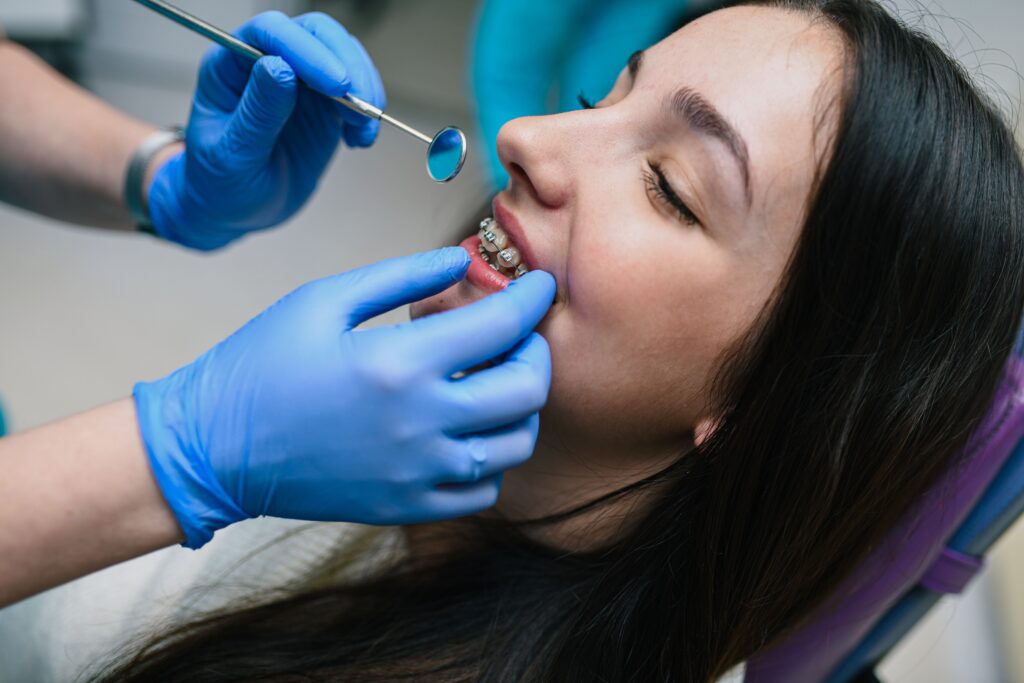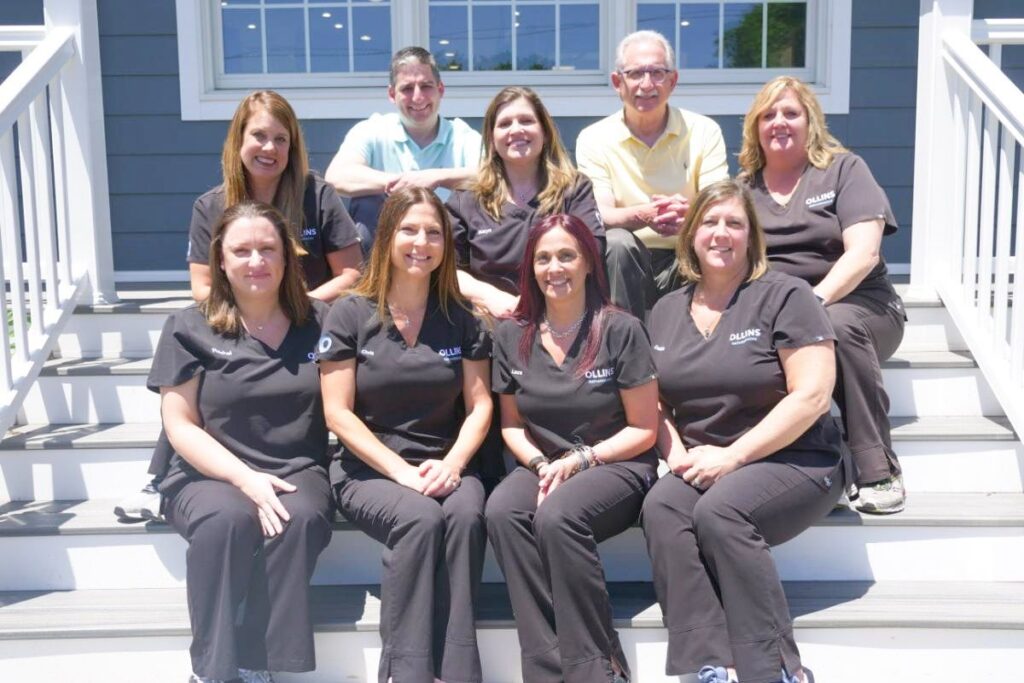Believe it or not, being a kid or teenager isn’t the only right time for braces. In fact, sometimes waiting until adulthood isn’t a bad thing at all. Our Ollins Orthodontics team wants to answer this common question: Are adults good candidates for braces?
Understanding Braces
Before delving into how they work for adult patients, let’s discuss different types of braces. They serve as a method to correct alignment and bite issues in teeth, with three main approaches in most orthodontic practices:
- Traditional metal braces stand out as a common and classic option. Comprising brackets, wires, and bands, they effectively shift teeth and correct bite issues.
- Clear braces, on the other hand, utilize ceramic brackets for a more natural appearance while still providing effective orthodontic treatment.
- Invisalign represents an alternative that eliminates traditional components. Instead, it employs clear plastic trays to gradually transform your smile, offering a discreet and removable option for orthodontic correction.
Braces at Different Ages
While this type of treatment is available to everyone, the age of the patient is still a key variable that can affect how it pans out. Let’s break it down for you by age group:
- Children (7-12 Years)
- Early intervention is typically advantageous as it can guide the growth of the jaw and address bite issues as permanent teeth emerge. This approach often involves two phases to coincide with the transition into permanent teeth.
- Adolescents (12-18 Years)
- Once the majority of permanent teeth are in place, a comprehensive plan is developed to concentrate on aligning teeth and rectifying bite issues. While clear aligners are commonly an option for teenagers, they may not be suitable for children.
- Adults (18+)
- As adults, the process of shifting adult teeth may take a bit longer. However, braces remain entirely effective for adults. Senior patients may receive additional attention, considering potential age-related changes during the orthodontic treatment process attention might be paid to age-related changes.

Benefits of Adult Braces
Having discussed the various stages of orthodontic treatment, it’s worth noting that there are some advantages to postponing intervention until adulthood, whether or not you planned it out that way!
- Versatile Treatment Options: Earlier, we talked about the various types of braces. Adults usually aren’t limited to a single option, depending on their condition. This freedom to choose can provide an option that suits lifestyle and aesthetic preferences.
- Improved Oral Health: Orthodontic treatment for adults often prioritizes oral health concerns, reducing the risk of gum disease, cavities, and jaw pain by correcting bite and alignment issues.
- Functional Improvements: Properly aligned teeth enhance chewing efficiency and speech clarity, addressing long-term speech issues for improved functionality.
- Enhanced Appearance: Orthodontic treatment in adulthood can significantly improve the aesthetic aspect of one’s smile, boosting overall confidence and self-esteem.
- Prevention of Further Damage: Misalignment is often the cause of worn teeth by way of grinding. Resolving this alignment can reduce that type of damage.
- Jaw Relief: Braces can alleviate discomfort associated with Temporomandibular Joint (TMJ) disorders by improving jaw alignment, offering relief for those accustomed to frequent pain
- Personalized Treatment: Adults actively collaborate with their orthodontists to create a customized treatment plan tailored to their specific goals and concerns.
- Increased Accessibility: Adult braces have become a more mainstream and socially acceptable form of treatment over the years, making orthodontic care accessible to a broader audience.
Additional Questions
We expect you to have questions—everyone does! Dr. Bruce and Dr. Gabriel are at your service to answer them. Here are a few that might arise prior to consultation:
- Can I still get braces with issues like cavities or gum disease?
It’s advisable to address cavities and gum disease before starting orthodontic treatment. Collaboration with general dentists is common to incorporate these treatments into the broader orthodontic plan.
- What about dental work, like crowns and bridges?
Having existing dental work, such as crowns and bridges, doesn’t necessarily exclude you from getting braces. The solution depends on the specific assessment, and treatment is tailored to accommodate these variables.
- Will having braces cause me to miss any work or social events?
Generally, people adjust quickly to braces, and the experience is not comparable to major dental procedures. While some minor discomfort may be expected, it shouldn’t significantly impact your normal lifestyle, including work and social events.
- How do you handle orthodontic emergencies?
In case of a serious emergency, seeking immediate medical attention is crucial. For minor damage to your appliance, orthodontic wax can be used temporarily until a visit to the orthodontic office is possible. The orthodontic team can provide further guidance on emergency approaches during in-office visits.

No Time Like the Present
Regardless of your age, you’re likely a great candidate for braces. If you’ve been considering orthodontic treatment, we encourage you to schedule a free consultation with our team at our Nutley office. Feel free to reach out to us at 973.667.0771.

